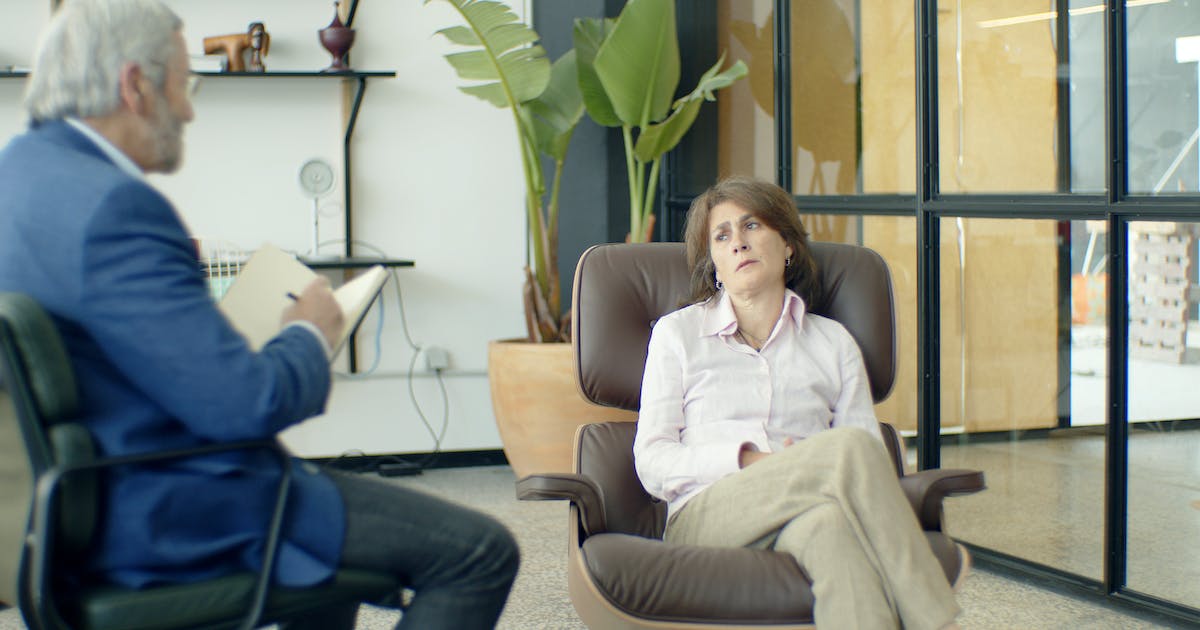Do you have a loved one who is in need of Arizona rehab but they refuse to go? Or perhaps you’ve been told by friends and loved ones that you need help, but you don’t think that you have a problem? Substance use disorders are not uncommon, but they tend to worsen without treatment.
In 2021, 61.2 million Americans aged 12 or older used illicit drugs in the past year. Of these, nearly 46.3 million met the applicable DSM-5 criteria for having a substance use disorder in the past year. Unfortunately, many of these people never get the help they deserve.
There are many barriers to treatment, such as the cost of treatment, the stigma associated with addiction and trouble initiating change. Another common barrier we’d like to discuss is the misinformation regarding addiction and how it can delay treatment.
Below are six myths and misconceptions about addiction that might be delaying treatment services for yourself or a loved one.
1. Addiction is a psychological disorder that can get better with willpower.
This is probably one of the biggest misconceptions out there. While there was a time when addiction was believed to be a character flaw or moral weakness, this is no longer reality. Decades of research have shown that addiction is a chronic disease similar to heart disease or hypertension. Since it is chronic, it is not a curable disease. But, it can be successfully treated and managed with the right approach.
Recovery takes hard work and a willingness to work on yourself, but you also need therapy, counseling and medication to treat the disease. Willpower, in itself, is not enough to treat a chronic, relapsing disorder. In fact, if you try to stop on your own, you will likely experience intense cravings that send you right back into the hands of the drug.
2. People who abuse substances are criminal, jobless or homeless.
The media often portray people with substance use disorders as being criminal, jobless and living on the streets. However, this is just a stereotype – and an inaccurate one at that. It’s important to recognize that people with addiction can be living very normal lives on the outside. Many have part or full time jobs, households to take care of and families to provide for.
If we continue to believe this stereotype, it will cause us to miss people in need. Addiction is a disease that worsens without intervention, which means people can eventually go on to lose their jobs, homes and marriages. But if you can recognize the need for help early on, you can get ahead of these problems and benefit from Arizona rehab.
3. Alcohol addiction is not as bad as drug addiction.
Addiction is the same disease, regardless of what you are addicted to. Therefore, you can’t safely assume that an alcohol addiction is ‘better’ or ‘safer’ than a heroin addiction. The disease will still run its course and destroy your life, little by little. Just because alcohol is legal and accessible does not make it any less of a problem.
In fact, alcohol is one of the leading preventable causes of death in the United States, behind tobacco, poor diet, physical activity and illegal drugs. Alcohol misuse causes about $249 billion per year, and globally, it’s the seventh leading risk factor for premature death and disability. Additionally, alcohol withdrawal can be fatal, causing seizures, hallucinations and delirium tremens. This is why you should never try detoxing on your own without medical support.
4. People with addiction need tough love.
Addiction is a debilitating disease that affects the individual and those around them. Tough love is not the solution to treating such a complex disorder. Instead, people are more likely to accept help when they feel love, compassion and acceptance. Of course, it’s up to the individual to change.
If you are the one trying to get help for a loved one, be careful not to confuse love with enabling. It’s important that you set the appropriate boundaries and practice self-care. Tough love, on the other hand, can deprive your loved one of their source of support. Remember, addiction is an illness. It is not a choice or something your loved one is doing on purpose.
5. You must hit rock bottom to accept help.
Modern addiction treatment is not a one-size-fits-all approach. Many treatment centers offer highly personalized services that are tailored to your exact needs. When you have an assessment done, a treatment plan will be developed based on your goals, the things that will help you meet these goals, ways to tell if you are meeting your goals and a timeframe.
With this in mind, it’s important to realize that there is no ‘right’ time to start treatment – and you certainly don’t need to wait until your life is at its lowest point. You can start treatment at any time, and it will be tailored to meet your needs and goals. And, the sooner you start therapy, the sooner you can start healing, which means you can avoid additional consequences of addiction.
6. Once you complete your time in an Arizona rehab, your journey is over.
Some people are under the impression that completing treatment means that the addiction is successfully treated. While we wish that were the case, it is not. Recovery is a lifelong pursuit, meaning you will need to develop new ways to cope with stress, anger and frustration. You will also need to find new hobbies that you enjoy to take the place of the time spent using drugs or alcohol.
For the best chances for success, we recommend choosing a longer treatment program from the start. Wolf Creek Recovery offers a full continuum of care that includes Phase One, Phase Two and Extended Care, which can go on for 90 days or longer. We also provide sober housing. Since we are located in Prescott, Arizona, many people choose our facility to escape their current environment and enjoy a fresh start.
Start Your Recovery – A New Life Awaits
Wolf Creek Recovery is here for you and your family. Contact us today to learn more about our addiction treatment services and how we can support the family unit. The most important thing to know is that people with addiction are not hopeless. People can and do recover from addiction every day.












